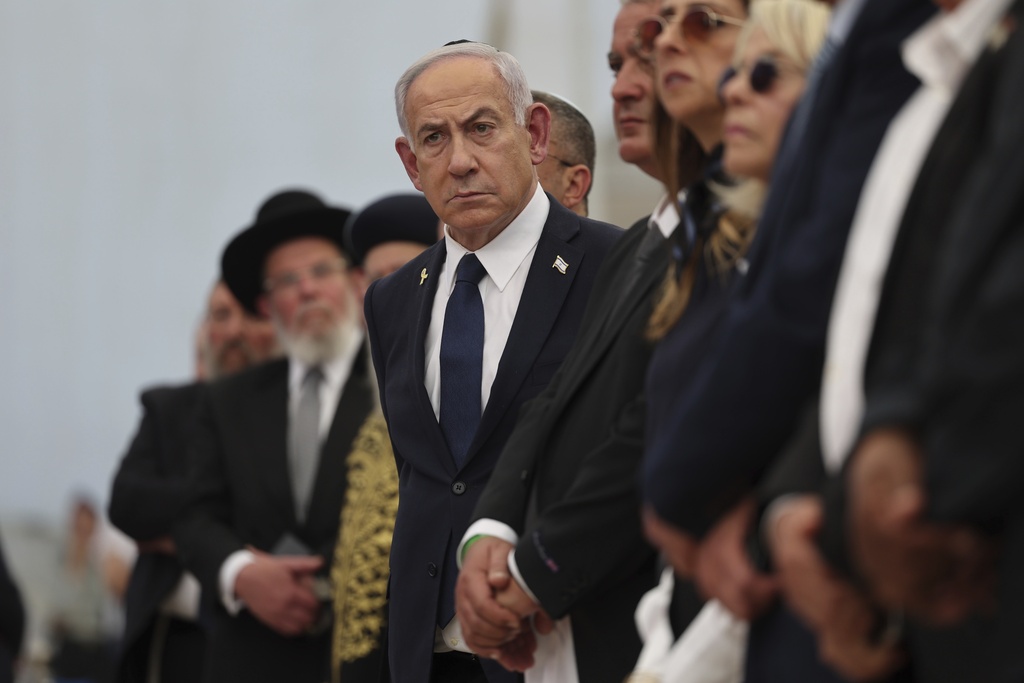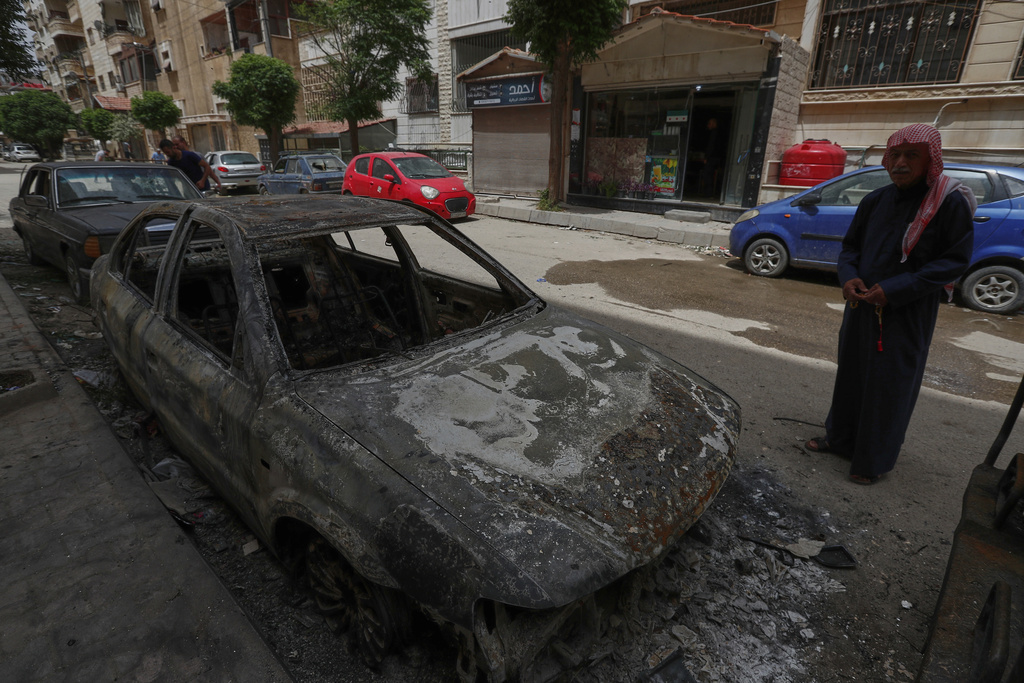
JERUSALEM - Israeli Prime Minister Benjamin Netanyahu said here Thursday that defeating Hamas is Israel's main goal and takes precedence over securing the release of the hostages still held in Gaza.
"We have many goals in this war. We want to bring back all our hostages ... It is a very important goal ... But the war has a supreme objective, and this supreme objective is victory over our enemies," Netanyahu made the remarks during a speech as the country is marking its 77th Independence Day.
The remarks marked a shift from Netanyahu's previous statements, in which he described the return of the 59 hostages still held in Gaza as equally important as defeating Hamas. They also came amid a stalemate in mediated talks over a potential ceasefire deal, and as weekly protests continue in Israel to demand an end to the war to secure the hostages' release, while Netanyahu's far-right coalition partners insist the war must continue.
The Hostages and Missing Families Forum, a group representing most of the hostages' families, issued a statement saying Netanyahu is "aligning" with his far-right ally and pro-settler leader Bezalel Smotrich, who has repeatedly declared that releasing the hostages "is not the most important goal" and has urged Netanyahu to reoccupy Gaza and hold it indefinitely.
Speaking at a separate Independence Day ceremony in Jerusalem, Israel Defense Forces Chief of Staff Eyal Zamir said the Israeli military "is ready and prepared to strike (Hamas) a decisive blow."
"We will use all the strength at our disposal, increase the pace of operations, and intensify the power. If necessary, we will do so soon," Zamir said.
Meanwhile, Israel's Army Radio reported that Netanyahu is expected to convene on Friday a special meeting with senior defense officials ahead of expanding the air and ground offensive in Gaza.
The last exchange of Israeli hostages and Palestinian detainees took place under a ceasefire that came into effect in January. Israel ended the ceasefire in March after about two months and resumed its deadly offensive in the Palestinian enclave.
The renewed Israeli attacks have so far killed 2,326 Palestinians and injured 6,050 others, Gaza health authorities said Thursday, adding the death toll in the enclave since the conflict began in October 2023 has risen to 52,418, with 118,091 injured.
On Tuesday, well-informed Egyptian sources told Xinhua that Israel insists on disarming Hamas as a precondition to its acceptance of Egypt's six-month Gaza truce proposal.

Harsh responses if attacks on Druze community continue in Syria
Separately, Israeli Defense Minister Israel Katz sent a stern message on Thursday to Syrian leader Ahmed al-Sharaa, vowing harsh responses if clashes with the Druze minority continue in Syria.
The minister announced that Israeli troops deployed in southern Syria "are prepared to prevent the entry of hostile forces into the area of Druze villages", adding the forces continue to monitor developments with readiness for "various scenarios".
"I repeat my warning to the head of the Syrian regime," Katz said in a statement, "if the attacks on the Druze in Syria do not stop, we will respond with great severity."
Following clashes between Syrian security forces and local Druze on Wednesday, Katz and the Israeli prime minister have instructed the Israeli military "to carry out several warning strikes against extremist elements, and have conveyed a clear message to the Syrian regime that it is responsible for preventing such attacks (on the Druze)", according to the statement.
Earlier on Thursday, two injured Druze Syrians were evacuated to Ziv Medical Center in Safed, northern Israel, to receive medical treatment.
Violence erupted earlier this week in Jaramana, a southeastern suburb of Damascus known for having a majority Druze and Christian population. The violence stemmed from the circulation of an audio recording, which was attributed to a member of the Druze community and contained remarks considered offensive to Islam.
READ MORE: Israel attacks in Syria, warns Damascus over threats to Druze community
The unrest, initially centered in Jaramana, has since spread to neighboring areas southwest of Damascus, including predominantly Druze towns, Sahnaya and Ashrafiyat Sahnaya, where clashes between local Druze fighters and pro-government forces have intensified.


